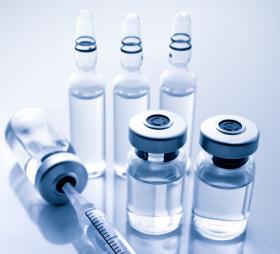Congressional probe into heparin scandal relaunched
Phil Taylor, 25-Feb-2011
 In the USA, the House Energy and Commerce Committee has relaunched its investigation into the events surrounding the contaminated heparin scandal in 2008 in order to pinpoint the individuals responsible.
In the USA, the House Energy and Commerce Committee has relaunched its investigation into the events surrounding the contaminated heparin scandal in 2008 in order to pinpoint the individuals responsible.
In a letter addressed to US Food and Drug Administration (FDA) Commissioner Margaret Hamburg, committee chair Fred Upton and fellow Republicans Cliff Stearns and Michael Burgess say there is "substantial public interest" in solving the case because so much of the heparin used in the USA today is still sourced from China.
Earlier investigations into the scandal have suggested that groups in China were responsible for the economically-motivated adulteration of heparin with over-sulphated chondroitin sulphate (OSCS), which led to more than 80 deaths and hundreds of allergic reactions in the USA alone, according to the FDA.
Upton and colleagues estimate that China is the source for around 80 per cent of all heparin used in the USA and 16 per cent of all active pharmaceutical ingredients (APIs) found in US medicines.
"There is reason to believe all or some of the individuals responsible for the adulteration are still actively engaged in the Chinese pharmaceutical supply chain, and pose a continuing threat to pharmaceutical products imported to the US," they write in the letter.
The FDA has two weeks to submit all the documents related to heparin-related inspections conducted by the agency in China, heparin lot testing data and documentation on possible sources of adulteration, according to the letter, which says it also wants to gauge the "adequacy of FDA's handling of this matter."
Last year, a General Accounting Office (GAO) report criticised the lack of a resolution in the investigation and raised questions about the FDA's use of external collaborators in trying to trace the individuals behind the contamination. The main focus of the GAO concerns was the assistance provided to the FDA by Momenta Pharmaceuticals (see FDA defends heparin actions; sued by heparin firm).
That followed an earlier letter from the House Energy and Commerce Committee which raised a number of concerns, including that the FDA had not adequately followed up information linking Chinese firms to the incident.
The FDA said last year its investigation of the case was hampered by a lack of cooperation from the Chinese authorities and was unable to get full access to the ingredient manufacturers in China, where the network of heparin producers is fragmented and supply chains convoluted.
The agency has been trying to bolster its local presence in China by opening local branches in Beijing, Guangzhou and Shanghai, but still only has enough resources to inspect a fraction of the thousands of manufacturing facilities operating in the country.

©
SecuringIndustry.com




 In the USA, the House Energy and Commerce Committee has relaunched its investigation into the events surrounding the contaminated heparin scandal in 2008 in order to pinpoint the individuals responsible.
In the USA, the House Energy and Commerce Committee has relaunched its investigation into the events surrounding the contaminated heparin scandal in 2008 in order to pinpoint the individuals responsible. 